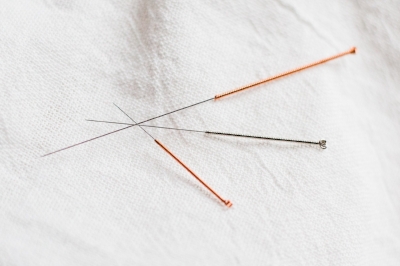
If you are going for your first acupuncture treatment, here is some important information that you should know. These facts will help you prepare for your first acupuncture appointment:
1) Does Acupuncture hurt?
If you have never had an acupuncture treatment before, you might not realize just how thin the needles are. The thinnest acupuncture needles can be as fine as a human hair. People feel a range of sensations upon insertion of the acupuncture needles, depending on their level of sensitivity. Some report feeling something akin to a mosquito bite, or even a slight pinch that subsides immediately after the needle is inserted. Sometimes, one can feel a dull, aching sensation, especially when the needles are inserted more deeply into larger areas, like muscle.
2) How many treatments will I need?
The short answer- one treatment is not enough!! A single acupuncture session will not usually provide an effective resolution of your particular issue. Acupuncture is a way of getting the brain to realize it needs to begin healing itself. One session will build onto the rest in an accumulative fashion. Treatments with acupuncture are considered a process, requiring at least 6 treatments to see the desired results or changes for healing. The number of treatments will vary from person to person, depending upon several factors, like how long you have had the issue, how severe it is, and how often you can be treated. In addition, successful healing also heavily depends on how willing you are to make necessary changes to assist the process, like taking herbal medicines, or making dietary and lifestyle changes.
3) Acupuncture does much more than treat pain!
Most people first consider trying acupuncture to treat neck, shoulder or back pain that hasn’t been successfully treated by other treatments, medications or therapies. According the WHO, the World Health Organization, “acupuncture can treat a variety of different conditions that range from insomnia to digestive disorders to autoimmune disease.” And—there is evidence that acupuncture can also be preventative, and can even help resolve and improve symptoms of severe incidents that are cardiac in nature, like stroke.
4) How much will a series of acupuncture treatment cost?
In Israel, acupuncture treatments are considered to be an essential health benefit and are therefore very often covered by your health plan with a referral from your local MD. In America, more and more insurance plans are covering acupuncture to treat chronic pain and other symptoms. In many clinics, including my own, packages are offered to enable a discount for purchase in advance. This way, people who have limited finances can be treated within their means.
5) Clinical trials have proven acupuncture’s benefits
The effectiveness of acupuncture has been studied extensively with clinical trials in China, Europe and the US. Both Western and Eastern medical institutions have demonstrated that acupuncture works! Evidence-based studies conclude that acupuncture relieves pain, improves organ function, and helps relieve symptoms of chronic diseases and of chemotherapy, as well. Patients who struggle with infertility can become strengthened by acupuncture, and the chances of becoming pregnant are greatly increased after several treatments. The effects of acupuncture on the brain and body are only beginning to be understood. Current evidence suggests that many factors—like expectation and belief—that are unrelated to acupuncture needling, may play important roles in the beneficial effects of acupuncture on pain. (NIH)
6) Acupuncture can facilitate healing.
One of the most powerful aspects of acupuncture is that it helps your body heal itself. Acupuncture points, or “acupoints”, are specific locations on the body that are the focus of acupuncture treatments. TCM (Traditional Chinese Medicine) explains acupuncture as a technique for “balancing the flow of energy or life force”, and that energy can be reached by stimulating small, specific channels on the body. TCM practitioners believe that there is a flow, known as “qi” or “chi”, that is located in certain “meridians” throughout the body. Chi is thought to be what separates the sick from the healthy — and when chi is not balanced, illness, pain, poor sleep, and fatigue can all occur.
Whether acupuncture is a treatment of the nerve systems and pathways, or whether it’s training the brain to experience less pain and to heal disease, the long-term benefits and low risk of side effects makes it a viable treatment option. Acupuncture is increasingly recognized by Western medicine as an effective alternative or adjunct to conventional treatments for nearly all medical issues. Because acupuncture has so many positive effects on the body, with minimal incidence of side effects, it is often considered in creating an integrative medicine treatment plan.